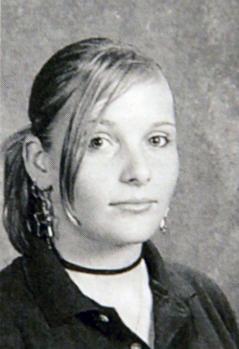|
|
|---|
Thursday, April 29, 2010
Buck Eversole: One of the Great Men of the War
by Ernie Pyle
IN ITALY, February 21, 1944 – The company commander said to me, "Every man in this company deserves the Silver Star."
We walked around in the olive grove where the men of the company were sitting on the edges of their foxholes, talking or cleaning their gear.
"Let’s go over here," he said. "I want to introduce you to my personal hero."
I figured that the lieutenant’s own "personal hero," out of a whole company of men who deserved the Silver Star, must be a real soldier indeed.
Then the company commander introduced me to Sgt. Frank Eversole, who shook hands sort of timidly and said, "Pleased to meet you," and then didn’t say any more.
I could tell by his eyes and by his slow and courteous speech when he did talk that he was a Westerner. Conversation with him was sort of hard, but I didn’t mind his reticence for I know how Westerners like to size people up first.
The sergeant wore a brown stocking cap on the back of his head. His eyes were the piercing kind. I noticed his hands – they were outdoor hands, strong and rough.
Later in the afternoon I came past his foxhole again, and we sat and talked a little while alone. We didn’t talk about the war, but mainly about our West, and just sat and made figures on the ground with sticks as we talked.
We got started that way, and in the days that followed I came to know him well. He is to me, and to all those with whom he serves, one of the great men of the war.
Frank Eversole’s nickname is "Buck." The other boys in the company sometimes call him "Buck Overshoes," simply because Eversole sounds a bit like "overshoes."
Buck was a cowboy before the war. He was born in the little town of Missouri Valley, Iowa, and his mother still lives there. But Buck went West on his own before he was sixteen, and ever since has worked as a ranch hand. He is twenty-eight, and unmarried.
He worked a long time around Twin Falls, Idaho, and then later down in Nevada. Like so many cowboys, he made the rodeos in season. He was never a star or anything. Usually he just rode the broncs out of the chute for pay – seven-fifty a ride. Once he did win a fine saddle. He has ridden at Cheyenne and the other big rodeos.
Like any cowboy, he loves animals. Here in Italy one afternoon Buck and some other boys were pinned down inside a one-room stone shed by terrific German shellfire. As they sat there, a frightened mule came charging through the door. There simply wasn’t room inside for men and mule both, so Buck got up and shooed him out the door. Thirty feet from the door a direct hit killed the mule. Buck has always felt guilty about it.
Another time Buck ran onto a mule that was down and crying in pain from a bad shell wound. Buck took his .45 and put a bullet through its head. "I wouldn’t have shot him except he was hurtin’ so," Buck says.
Buck Eversole has the Purple Heart and two Silver Stars for bravery. He is cold and deliberate in battle. His commanders depend more on him than on any other man. He has been wounded once, and had countless narrow escapes. He has killed many Germans.
He is the kind of man you instinctively feel safer with than with other people. He is not helpless like most of us. He is practical. He can improvise, patch things, fix things.
His grammar is the unschooled grammar of the plains and the soil. He uses profanity, but never violently. Even in the familiarity of his own group his voice is always low. He is such a confirmed soldier by now that he always says "sir" to any stranger. It is impossible to conceive of his doing anything dishonest.
After the war Buck will go back West to the land he loves. He wants to get a little place and feed a few head of cattle, and be independent.
"I don’t want to be just a ranch hand no more," he says. "It’s all right and I like it all right, but it’s a rough life and it don’t get you nowhere. When you get a little older you kinda like a place of your own."
Buck Eversole has no hatred for Germans. He kills because he’s trying to keep alive himself. The years roll over him and the war becomes his only world, and battle his only profession. He armors himself with a philosophy of acceptance of what may happen.
"I’m mighty sick of it all," he says very quietly, "but there ain’t no use to complain. I just figured it this way, that I’ve been given a job to do and I’ve got to do it. And if I don’t live through it, there’s nothing I can do about it."
Part II of Ernie Pyle on Sgt. Frank "Buck" Eversole
In Italy - February 22, 1944 - Buck Eversole is a platoon sergeant in an infantry company, That means he has charge of about 40 front-line fighting men. He has been at the front for more than a year. War is old to him and he has become almost a master of it. He is a senior partner now in the institution of death. His platoon has turned over many times as battle whittles down the old ones and the replacement system brings up new ones. Only a handful now are veterans.
"It gets so it kinda gets you, seein' these new kids come up," Buck told me one night in his slow, barely audible Western voice, so full of honesty and sincerity. "Some of them have just got fuzz on their faces, and don't know what it's all about, and they're scared to death. No matter what, some of them are bound to get killed."
We talked about some of the other old-time non-coms who could take battles themselves, but had gradually grown morose under the responsibility of leading green boys to their slaughter. Buck spoke of one sergeant especially, a brave and hardened man, who went to his captain and asked to be reduced to a private in the lines.
"I know it ain't my fault that they get killed," Buck finally said. "And I do the best I can for them, but I've got so I feel like it's me killin' 'em instead of a German. I've got so I feel like a murderer. I hate to look at them when the new ones come in."
Buck himself has been fortunate. Once he was shot through the arm. His own skill and wisdom has saved him many times, but luck has saved him countless other times. One time Buck and an officer took refuge from shelling in a two room Italian stone house. As they sat there, a shell came through the wall of the far room, crossed the room and buried itself in the middle of the wall with its nose pointing upward. It didn't go off.
Another time Buck was leading his platoon on a night attack. They were walking Indian file. Suddenly a mine went off, and killed the entire squad following Buck. He himself had miraculously walked through the mine field without hitting a one.
One day Buck went stalking a German officer in close combat, and wound up with the officer on one side of a farmhouse and Buck on the other. They kept throwing grenades over the house at each other without sucess. Finally Buck stepped around the corner of the house, and came face to face with the German, who'd had the same idea.
Buck was ready and pulled the trigger first. His slug hit the German just above the heart. The German had a wonderful pair of binoculars slung over his shoulders, and the bullet smashed them to bits. Buck had wanted some German binoculars for a long time.
The ties that grow up between men who live savagely and die relentlessly together are ties of great strength. There is a sense of fidelity to each other among little corps of men who have endured so long and whose hope in the end can be but so small.
One afternoon while I was with the company Sergt. Buck Eversole's turn came to go back to rest camp for five days. The company was due to attack that night. Buck went to his company commander and said, "Lieutenant, I don't think I better go. I'll stay if you need me."
The lieutenant said. "Of course I need you, Buck, I always need you. But it's your turn and I want you to go. In fact, you're ordered to go."
The truck taking the few boys away to rest camp left just at dusk. it was drizzling and the valleys were swathed in a dismal mist. Artillery of both sides flashed and rumbled around the horizon. The enchroaching darkness was heavy and forboding.
Buck came to the little group of old-timers in the company with whom I was standing, to say goodbye. You'd have thought e was leaving forever. he shook hands all around, and his smile seemed sick and vulnerable. He was a man stalling off his departure.
He said, "Well, good luck to you all." And then he said, "I'll be back in just five days." he said goodbye all around and slowly started away. But he stopped and said goodbye all around again, and he said, "Well, good luck to you all."
I walked with him toward the truck in the dusk. He kept his eyes on the ground, and I think he would have cried if he knew how, and he said to me very quietly:
"This is the first battle I've ever missed that this battalion has been in. Even when I was in the hospital with my arm the were in bivouac. This will be the first one I've ever missed. I sure hope they have good luck."
And then he said: "I feel like a deserter."
He climbed in, and the truck dissolved into the blackness. I went back and lay down on the ground among my other friends, waiting for the night orders to march. I lay there in the darkness thinking - terribly touched by the great simple devotion of this soldier who was a cowboy - and thinking of the millions far away at home who must remain forever unaware of the powerful fraternalism in the ghastly brotherhood of war.
Ernie Pyle
0 Comments:
Subscribe to:
Post Comments (Atom)




















